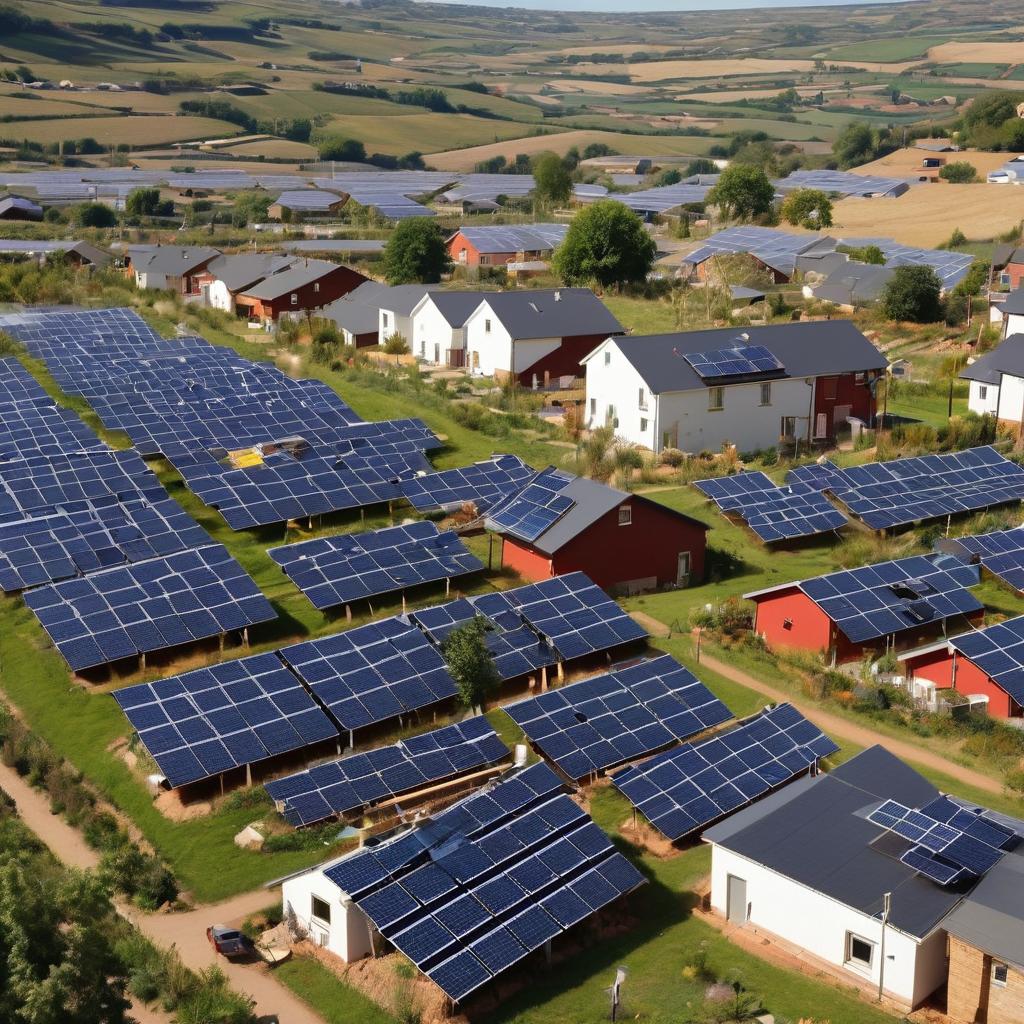Sustainable Solutions: Examining the Role of Renewable Energy Communities in Europe's Green Transition

A recent study by the Department of Astronautical, Electrical, and Energy Engineering, Sapienza University of Rome, Institute of Atmospheric Pollution Research, Italian National Research Council, Institute for Renewable Energy, Eurac Research, Bolzano, Department of Economics, Engineering, Society and Business Organization, University of Tuscia, Viterbo, explores how national policies shape the development of Renewable Energy Communities (RECs) across Europe, highlighting the societal, technical, and economic factors at play. As the European Union sets ambitious targets to slash greenhouse gas emissions by 2030 and achieve climate neutrality by 2050, the role of energy communities is becoming increasingly crucial.
Framework and Challenges of RED II for Renewable Energy Communities
The European Union’s Renewable Energy Directive (RED) II, part of the Clean Energy Package, establishes the framework for RECs. These communities are envisioned as community-led organizations dedicated to generating renewable energy, prioritizing social and environmental goals over profits. Despite this clear vision, the implementation of RECs faces substantial challenges, notably in governance structures, technological infrastructure, and financial sustainability.
Analyzing Governance, Technology, and Business Models for RECs
The study delves into three critical levels of analysis to unpack these challenges: governance, technology, and business models. Governance models for RECs vary widely across EU member states, shaped by local cultural contexts, energy consumption habits, and levels of trust in public institutions. The directive encourages community-led, non-profit energy organizations, but national implementations show significant differences, affecting the success and scalability of RECs. The spatial extension of regulatory frameworks, whether applied locally or nationally, also plays a crucial role in shaping these initiatives.
On the technical front, photovoltaic technology (PV) emerges as the most feasible option for RECs due to its cost-effectiveness and scalability. PV systems are modular and can be expanded as needed, making them particularly suitable for community energy projects. However, the initial investment required for other renewable technologies such as wind, biomass, or small hydroelectric power remains a significant barrier. These technologies often face complex funding mechanisms and incentive structures that favor energy production over initial setup costs.
From a societal perspective, energy communities are not a new concept. Their roots can be traced back to the late 19th and early 20th centuries with rural electrification cooperatives in countries like Germany, Italy, and Spain. Today, community engagement is still paramount to the success of RECs. Effective public participation not only enhances local acceptance but also taps into local expertise, driving the successful implementation of renewable energy projects.
Economically, the study reviews various business models and highlights the financial barriers impacting RECs. Economic models for RECs often struggle due to the high upfront costs and the need for sustainable financial incentives. The current incentive structures are more focused on energy sales rather than supporting the initial establishment of these communities. Additionally, the review points out that ensuring economic sustainability is crucial for the long-term viability of RECs.
Toward a Greener Future: The Role of Tailored REC Policies
The researchers conclude that there is no one-size-fits-all solution for REC governance and technology adoption. National policies and local conditions heavily influence the development and effectiveness of these communities. The study calls for more empirical research to identify best practices and develop supportive frameworks that can enhance the role of RECs in Europe’s energy transition.
As Europe advances towards a greener future, understanding the interplay between national policies and local initiatives is crucial. Empowering communities through tailored policies and innovative technologies will be key to achieving the EU's renewable energy and climate goals, ensuring a sustainable and inclusive energy transition.










